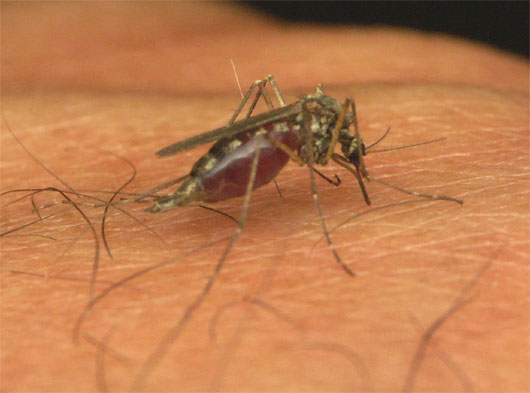Identify a new enzyme of malaria parasites
Scientists on November 27 published in the journal Nature that they have identified a new enzyme of malaria-causing parasites, helping to find more effective treatments for dangerous diseases. this.
>>> TheUS develops 100% immune vaccines for malaria
The enzyme that the team discovered was called Phosphatidylinositol-4-kinase or PI4 K. This is an enzyme that Plasmodium malaria parasites need to sustain life in host cells.
PI4K is used by parasites to metabolize energy in every stage of the infectious process on the human body.
The detection of PI4K helps doctors use potential drugs to attack this new enzyme, which in turn can kill pathogenic parasites.

Photo: cougar.collegiate-va.org
The medical community judged this as an important finding, since parasites' weaknesses are often difficult to detect in order to prevent all complex stages of Plasmodium process from developing and multiplying. in the patient's body.
Case McNamara, a genetic specialist at the Novartis Research Foundation in San Diego, California, said most malaria drugs are only capable of affecting certain stages of the life cycle. parasites, which are not the whole process.
It is noteworthy that potential drugs cannot wipe out the early forms of the parasite called Hypnozoites , so they remain active in the liver, then revive causing recurrence of malaria in patients.
Using drugs that directly affect PI4K not only helps to cure malaria infections but also prevents infection, even prevents the transmission of parasites back to mosquitoes.
Therefore, this is a new treatment factor that is more effectively evaluated than the use of Primaquine in controlling Hypnozoites.
Although licensed for more than half a century, researchers say Primaquine is still considered a last resort because it can cause anemia and life-threatening diseases in people with inherent mutations. Genetic genes.
According to the World Health Organization (WHO), in 2010, there were about 219 million cases of malaria in the world, causing about 660,000 deaths, most of them under 5 years old in sub-Saharan Africa.
The disease is still one of the main causes of death and illness in the Asia-Pacific region with about 36 million cases and 49,000 deaths annually.
- New way to kill malaria parasites
- Warning about the emergence of drug-resistant malaria parasites
- How to diagnose, treat and prevent malaria
- The United States develops 100% immunization against malaria
- New discovery about malaria
- Discover how to kill malaria-causing parasites
- Decoding DNA of malaria parasite
- Viagra helps fight malaria
- Vietnam has appeared chemical resistant mosquitoes, which are at risk of spreading
- 'Aggressive' drug-resistant malaria parasites spread throughout Southeast Asia
- New drugs prevent malaria effectively
- Discover how to kill malaria parasites
 Green tea cleans teeth better than mouthwash?
Green tea cleans teeth better than mouthwash? Death kiss: This is why you should not let anyone kiss your baby's lips
Death kiss: This is why you should not let anyone kiss your baby's lips What is salmonellosis?
What is salmonellosis? Caution should be exercised when using aloe vera through eating and drinking
Caution should be exercised when using aloe vera through eating and drinking